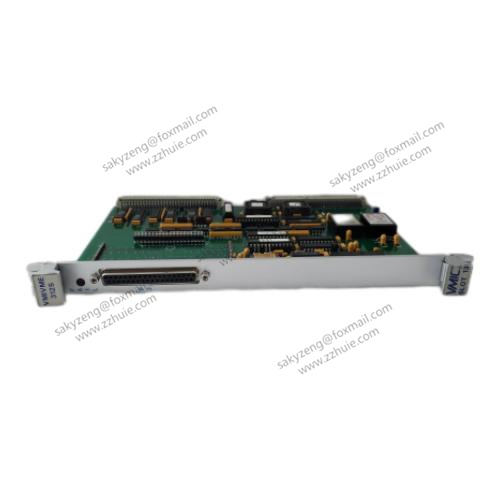

— product —
 customer service +86 18020721390
customer service +86 18020721390 Email:sakyzeng@foxmail.com
Mobile:+86 18020721390
Telephone:+86 18020721390
Address:Hongshan Hotel, No. 42 Hongshanhu Road, Beijie Street, Xixiu District, Anshun City, Guizhou Province
Brand: GE
Model: GE VMIVME-5576 | Fiber optic reflective memory interface board
Origin: Switzerland
Warranty: 365 days
Quality: new/second-hand
Delivery method: express delivery
product details
GE VMIVME-5576 is a high-performance, multi-channel fiber optic reflective memory interface card for VME networks, belonging to GE Fanuc's VMIC series products, suitable
for data sharing between distributed computer systems.
· Fiber optic network: A high-speed, easy-to-use fiber optic network with a serial rate of 170Mbaud.
· Node Connection: The longest distance between nodes can reach 2000 meters, and up to 256 nodes can be connected.
· Data transmission rate: 6.2Mbyte/s without redundant transmission and 3.2Mbyte/s with redundant transmission.
· Memory capacity: up to 1Mbyte of reflective memory, configurable with 256Kbyte to 1Mbyte of onboard SRAM.
· Interrupt function: Any node on the network can generate an interrupt on any other node or all network nodes through a command. The interrupt signal is level three and
can be defined by the user.
· Data buffering: Send and receive FIFOs buffer data during peak data rates to optimize CPU and bus performance and maintain high data throughput.
· Node Number: Each node on the system has a unique identification number between 0 and 255, determined by jumper wires on the circuit board, which can be read by
software accessing onboard registers.
· The size is 6U VME board specification, usually about 233mm long and 160mm wide. The weight is about 1.5kg.
· Data sharing: Data is transmitted through writing to the onboard global RAM and automatically sent to the memory locations of all reflective memory boards on the
network. Data transfer between nodes is transparent to software and does not require I/O overhead.
· Interrupt synchronization: Reflective memory allows interrupts to be sent to one or more nodes by writing byte registers. These interrupt signals can be used to synchronize
system processes, and interrupts always follow data, ensuring that data is received before interrupt confirmation.

Related recommendations